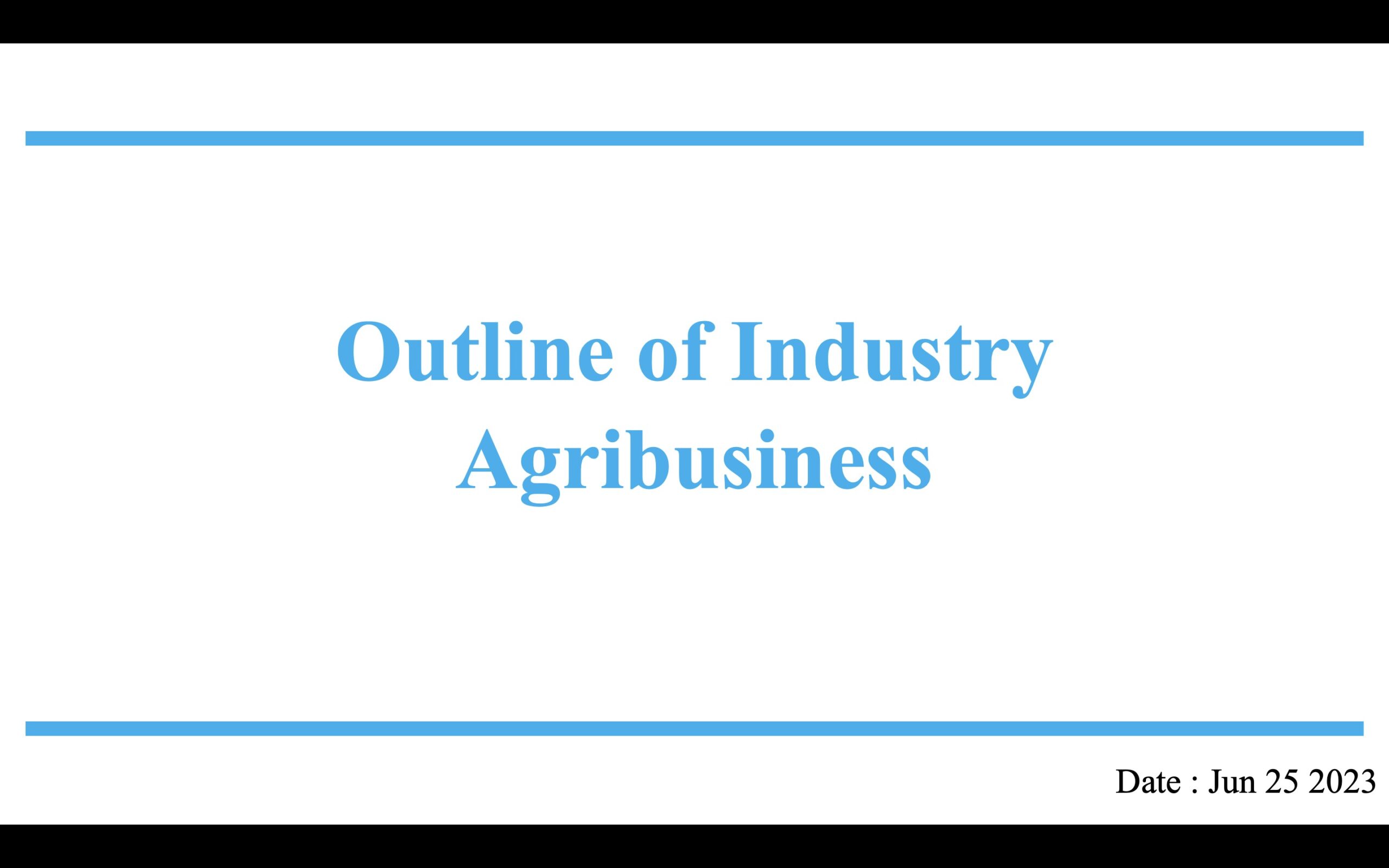Agribusiness is a term used to describe the businesses and organizations that are involved in the production, processing, and distribution of agricultural products. It is a complex and multifaceted industry that plays a crucial role in feeding the world’s growing population and providing a variety of products for both domestic and international markets.
Agribusiness encompasses a wide range of activities, including the production of crops, livestock, and dairy products, as well as the processing, packaging, and distribution of these products. It also includes the financing, marketing, and management of agricultural operations, as well as the research and development of new technologies and techniques to improve efficiency and productivity.
One of the key aspects of agribusiness is the integration of various stages of the supply chain, from the farm to the consumer. This allows for more efficient and cost-effective production and distribution of agricultural products, and helps to ensure that consumers have access to a consistent supply of high-quality products at competitive prices.
Agribusiness also plays a crucial role in supporting rural communities and the economies of many countries. In many developing countries, agribusiness is often the primary source of employment and income, and can help to reduce poverty and increase food security. In developed countries, agribusiness is a major contributor to the economy, providing a variety of products for domestic and international markets.
However, agribusiness also faces a number of challenges, including the need for sustainable and efficient production methods, the impact of climate change on agriculture, and the increasing demand for high-quality and sustainable products from consumers. In addition, there are also concerns about the impact of agribusiness on the environment, including the use of synthetic fertilizers and pesticides, soil degradation, and the loss of biodiversity.
To address these challenges, there is a growing trend towards sustainable agribusiness practices, which aim to improve the efficiency and sustainability of agricultural operations while also reducing their impact on the environment. This includes the adoption of sustainable agriculture practices, such as crop rotation, cover cropping, and the use of natural pest control methods, as well as the development of new technologies and techniques to improve efficiency and reduce waste.
In addition, agribusiness is also increasingly focused on the development of value-added products, such as organic and locally-sourced products, that appeal to consumers who are concerned about the environmental and social impact of their food choices. This trend is also driven by the increasing demand for high-quality and healthy products, as well as the desire for more diverse and sustainable food options.
In conclusion, agribusiness plays a crucial role in feeding the world’s growing population and supporting the economies of many countries. However, it also faces a number of challenges, including the need for sustainable and efficient production methods, the impact of climate change on agriculture, and the increasing demand for high-quality and sustainable products from consumers. By adopting sustainable agribusiness practices and developing value-added products, the industry can continue to grow and thrive, while also reducing its impact on the environment and supporting the needs of consumers and rural communities.



Comment